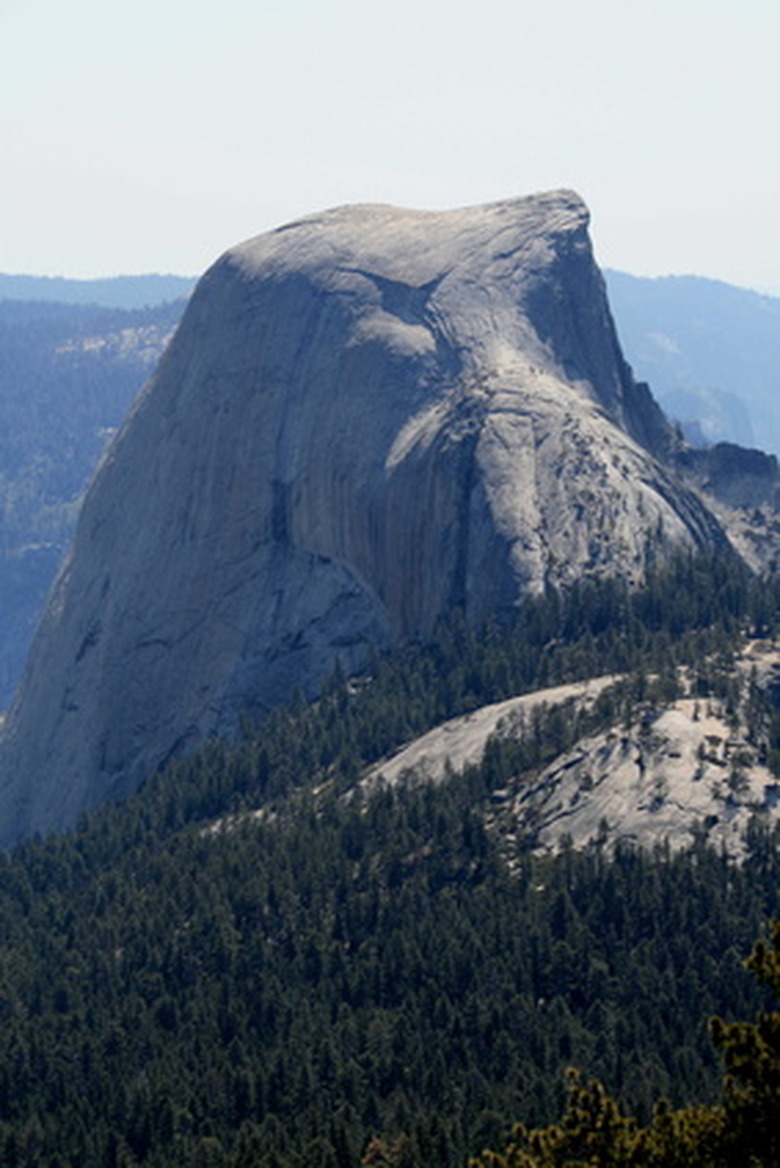What Are The Four Causes Of Mechanical Weathering?
Weathering is the process of nature acting on rocks – decomposing them, changing their color or breaking them up. You may hear about "weathering" of all manner of things, from houses to motor vehicles, but in a scientific context, the meaning is geological.
Weathering may occur through the actions of water, air, plants, animals and various chemicals. Mechanical weathering is the breaking down of rocks into smaller pieces without changing the composition of the minerals in the rock. This can be divided into four basic types – abrasion, pressure release, thermal expansion and contraction, and crystal growth.
Types of Weathering
Types of Weathering
Chemical weathering involves changes in the composition of the rock, or on the surface of the rock, that make the rock change its shape or color. The processes involved in chemical weathering can include carbon dioxide, oxygen, water and acid.
Be it by chemical weathering or by one of the mechanical weathering processes discussed later, once rocks are reduced to smaller-sized pebbles, they may be subject to another type of weathering – erosion. Erosion occurs when these comparatively small chunks of earth are moved along by by wind, water or ice. The water may be in the form of rain and may also result from human forces such as the irrigation of crops.
Abrasion Weathering
Abrasion Weathering
Abrasion weathering also includes weathering resulting from basic impact forces. When a rock tumbles from on high, it may not only break into smaller pieces when it lands, but it can also damage other rocks along the way. Abrasion also results from sand grains or pebbles – items that were once part of larger rocks themselves – being blown by wind across the surfaces of larger rocks, slowly damaging and defacing them over time.
Frost action is considered a form of abrasion and impact damage. When water freezes, it expands by about 9 percent, and the force that the ice exerts on surrounding rocks is actually far stronger than the tensile strength that those rocks use to resist it. Ice eventually prevails, and the rock enclosing it breaks down.
Pressure Release Weathering
Pressure Release Weathering
Pressure release weathering occurs when rocks deep underground, normally subject to enormous pressure from all sides, experience a decrease in this ambient pressure as a result of forces such as erosion occurring at the surface. When the surrounding weight is reduced below a critical level, the rock starts to break owing to differential pressures across different parts of it, leading to shearing that is usually parallel to the rock's surface. Sometimes these pressure-released chunks of rock project above the Earth's surface.
Thermal Expansion and Contraction Weathering
Thermal Expansion and Contraction Weathering
This type of weathering occurs as a result of the expansion and contraction of rock as it is heated and cooled respectively. (In this respect, rock behaves just like water does, but without the change of phase from solid to liquid or vice versa.) This is of special significance in rocks that are made from crystals of more than one material, such as granite. With enough expansion and contraction cycles, the rock eventually begins to break apart.
Rocks in areas subject to large temperature swings, such as those in which wildfires are an annual occurrence, are believed to be more susceptible to this kind of weathering.
Crystal Growth Weathering
Crystal Growth Weathering
Crystal growth weathering occurs when different substances become ionically bonded together to form salts, of which sodium chloride (NaCl), or table salt, is just one example. When these salts form in the crevices of rocks and begin to grow, almost like living things do, they exert greater and greater pressure on the walls of rock confining them, most strongly in a direction perpendicular to the crevice walls. This pressure ultimately leads to cracking of the rock and its mechanical breakdown.
Cite This Article
MLA
Beck, Kevin. "What Are The Four Causes Of Mechanical Weathering?" sciencing.com, https://www.sciencing.com/four-causes-mechanical-weathering-6821475/. 19 November 2018.
APA
Beck, Kevin. (2018, November 19). What Are The Four Causes Of Mechanical Weathering?. sciencing.com. Retrieved from https://www.sciencing.com/four-causes-mechanical-weathering-6821475/
Chicago
Beck, Kevin. What Are The Four Causes Of Mechanical Weathering? last modified August 30, 2022. https://www.sciencing.com/four-causes-mechanical-weathering-6821475/
